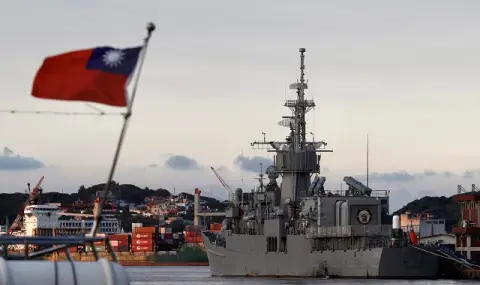Taiwanese President-elect William Lai urged China to have the courage to talk to the legitimately elected government of Taiwan, and not only with the opposition parties under pre-set conditions, reported Reuters, quoted by BTA.
China considers democratically governed Taiwan as its territory despite strong objections from the government in Taipei. The island faces a difficult national security situation as China keeps closing in on it, the president-elect said as he announced the appointments of his new security and diplomacy team ahead of his inauguration next month.
In the past four years, China has increased military and political pressure against Taipei, notes Reuters. Lai, who won the election in January and takes office on May 20, is of particular concern to Beijing, which sees him as a dangerous separatist.
Lai has repeatedly offered to negotiate with China, but has been refused. He emphasizes that only the Taiwanese people can decide their future.
The challenge facing the new national security team is unprecedented, Lai stressed to the media, again appealing to Beijing for talks.
The People's Republic of China will not gain the support of the Taiwanese public if it is willing to talk to the Taiwanese opposition and with "political preconditions," the president-elect stressed, making a veiled reference to Taiwan's main opposition Nationalist Party, whose top leaders are visiting often China in recent months.
For now, there is no comment from China's Taiwan Affairs Office, Reuters notes. Beijing has repeatedly said that any talks can only take place if the Taiwanese government accepts that it is part of a "united China" - a position supported by Taiwanese nationalists but rejected by Lai and President Tsai Ing-wen.
National Security Council Secretary General Wellington Ku, a lawyer by training, will take over as defense minister from Chiu Kuo-chen, a former army chief, the president-elect said. Current Foreign Minister Joseph Wu will take over from Qu as head of the National Security Council, and Lin Jialong, acting general secretary in the presidential office, will become the new foreign minister, he added.
The post of head of China's top policy-making body, the Mainland Affairs Council, is held by Qiu Chuizheng, a former deputy in the council with years of experience in China policy.
Intelligence chief Tsai Mingyen remains as head of the National Security Bureau.
